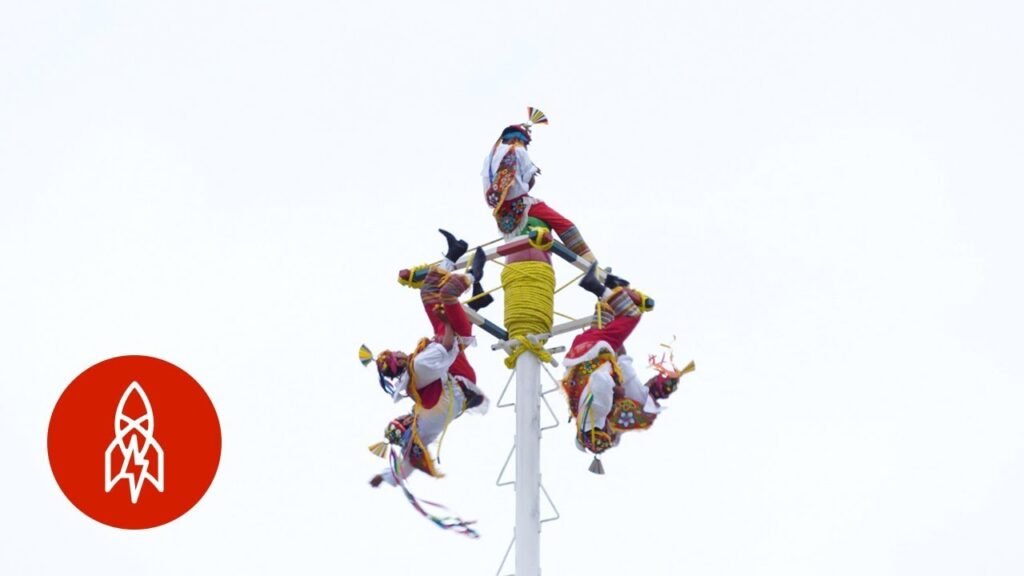Discovering Mezcal: The Charm of Traditional Cross-Shaped Cups
Embarking on a journey through the rolling hills and valleys of Mexico where agave plants grow abundantly, one discovers the soul-warming spirit of mezcal. This traditional beverage, deeply rooted in Mexican culture, has a unique way of embracing its ancestral heritage through the art of sipping from cross-shaped cups, known locally as «jicaras». These vessels are not just a means of enjoying mezcal; they are a bridge to a storied past, reflecting a reverence for the land and the spirituality that permeates mezcal production.
Crafted from the gourds of the «jicara» tree, these cups are as organic as the mezcal they hold. Artisans skillfully cut, clean, and sometimes intricately decorate the gourds, creating a cross at the cup’s base—a design element both aesthetic and symbolic. When filled with the crystal-clear liquid, the cross appears to meld with the mezcal, reminding us of the ancient beliefs where spirits of the earth were invoked to bless the crops and ensure their prosperity.
The ritual of using cross-shaped jicaras adds a layer of intimacy to the mezcal tasting experience. The intentional act of cradling the cup in your hands and drinking from the cross intersection encourages mindfulness and respect for the spirit you’re consuming. It slows down time, allowing you to truly savor the complex flavors and smoky undertones that develop through the mezcal’s distinct distillation process. As such, these cups are more than a vessel; they are a symbol of the heart of Mexican craftsmanship and the profound connection between tradition and modernity in the world of mezcal.
Embracing Mexican Culture: Lighting Candles to the Saints
Exploring the rich tapestry of Mexican culture often leads travelers to witness the spiritual tradition of lighting candles to the saints. This practice, deeply rooted in the Mexican way of life, is not just a religious gesture, but also a cultural expression that unveils the values and hopes of the people. Across the vibrant markets and local churches, you will find candles in a myriad of colors, each signifying a different prayer or intent, such as health, prosperity, or protection.
In the heart of Mexico’s towns and cities, the flickering lights of candles in front of saint statues tell a tale of devotion and respect. Patrons of the saints light candles to request guidance, to give thanks, or to express their desires and dreams. It’s not uncommon for travelers to be invited to partake in this ritual, thereby forming an invisible bond with the local community and their beliefs. As you light a candle and stand in silent reverence, you can almost feel the pulse of Mexican spirituality.
Each saint has a special place in the hearts of the faithful, and you will quickly learn that different saints are entrusted with specific aspects of life. For instance, Saint Jude is known as the patron saint of lost causes, and his following is particularly fervent. Candle vendors often recount stories of miracles and answered prayers, which only adds to the mystical atmosphere that envelops you as you navigate this profound aspect of Mexican culture.
When you partake in lighting a candle to the saints, it is not just about observing a tradition, but about immersing oneself in the local way of life. Travelers with an open heart will appreciate the sincerity and warmth with which Mexicans embrace their faith. Lighting a candle might be a simple act, but in Mexico, it is a bridge to understanding the collective soul of its people, illuminating the path to a genuine cultural connection.
The Art of Mezcal: Understanding the Significance of Cross-Shaped Cups
Mezcal, Mexico’s iconic spirit, carries with it not just a rich flavor but also a profound cultural heritage. Sipping mezcal from the traditional cross-shaped cups, locally known as «jicaras,» is more than a mere act of drinking; it’s a ritual steeped in symbolic meaning. The cross-shaped design of these cups isn’t just an aesthetic choice—it deeply resonates with the spiritual practices and the historical context of mezcal production in Mexico.
The cross-shaped jicaras are carefully carved from the gourds of the calabash tree, and their unique form holds religious significance for many indigenous communities in Mexico. The cross symbolizes the cardinal directions—north, south, east, and west—and encapsulates the unity between earth and sky, an essential element in the spiritual life of these cultures. When these cups cradle the mezcal, they turn the simple act of drinking into a connection with the universe and its elements.
Moreover, this traditional method of serving mezcal pays homage to centuries-old practices. The use of cross-shaped cups can be traced back to pre-colonial times when the indigenous peoples would offer drinks to the gods as a form of prayer and thanksgiving. Today, enjoying mezcal from these cups continues to be a way of honoring the ancestors and preserving a custom that is intricately linked to Mexican heritage and pride.
In addition to their spiritual and cultural implications, cross-shaped jicaras also contribute to the sensory experience of drinking mezcal. Experts claim that the open form of the cup allows the spirit’s complex aromas to be fully appreciated, enhancing the overall tasting journey. Thus, these distinctive cups not only uphold a rich legacy but also elevate the act of savoring mezcal to an art form, marrying tradition with the sensual delight of one of Mexico’s most revered beverages.
Spiritual and Gastronomic Journey: Mezcal in Traditional Cups
In the heart of Mexico, amidst the arid landscapes and ancient agave fields, lies a spirited tradition that intertwines the soul of Mexican culture with its rich gastronomy. Mezcal, a distilled alcoholic beverage, is more than just a drink; it’s a passage through centuries of tradition. Each sip taken from traditional cups, locally known as ‘jicaras’ or ‘copitas,’ is an homage to the artisanal heritage that has crafted this smokey elixir. Meeting the makers and partaking in communal sips offers a glimpse into the mystical practices that surround mezcal production.
The influence of Mezcal on Mexican culture is profound, with roots delving deep into the pre-Hispanic era. It has been a long-standing ritualistic drink, often associated with religious ceremonies and social gatherings. The act of pouring mezcal into handcrafted cups, carved from gourds or fashioned from clay, is a ritual in itself, connecting participants with the earth’s elements and the spirit of the agave gods. Each variety of mezcal carries the imprint of its terroir, much like a fingerprint — unique and telling a story of the land from which it hails.
Embarking on a mezcal tasting journey allows adventurers to explore the vast array of flavors and aromas that this versatile spirit offers. Traditional cups are preferred for tastings as they are believed to unlock the true essence of mezcal. They are designed to spread the liquid across the palette, ensuring a full spectrum of flavor with each taste. When paired with regional cuisine, like Oaxacan mole or fresh tlayudas, mezcal elevates the experience, creating an exquisite synergy of taste and tradition, enchanting even the most discerning palates.
A Blend of Traditions: How Mezcal and Saints Candles Connect
Mexico is a country steeped in rich traditions, many of which have been shaped by both indigenous cultures and Spanish colonial influence. A unique aspect of this cultural tapestry is how certain elements from different origins intertwine, creating practices that are distinctly Mexican. One such fascinating blend can be seen in the way mezcal, a traditional alcoholic beverage, is often consumed in the same settings as saints candles are lit, merging the spiritual with the celebratory.
Mezcal, made from the agave plant, is more than just a drink in Mexico; it’s a symbol of communal gathering and local craftsmanship. Distilled in rural areas and often associated with the southern state of Oaxaca, the production of mezcal is a ritual in itself. This spirit has been enjoyed in Mexico for centuries, and its significance is honored every time a bottle is opened. In many communities, mezcal is not merely drunk for pleasure, but also plays a pivotal role in religious and cultural ceremonies where saints candles also hold prominence.
The lighting of saints candles, each one representing a different patron saint or divine aspect, is a practice rooted in the Catholic traditions introduced by the Spanish. These candles are lit as an offering or during prayer, seeking guidance, protection, or simply to commemorate a saint’s day. In the juxtaposition of mezcal and saints candles, we observe a silent dialogue between earthy tradition and celestial faith. This blend is a testament to the syncretism of Mexican culture, where the physical act of toasting with mezcal converges with the spiritual act of lighting a candle, creating a moment of shared heritage and identity.
Mexican Adventures: Exploring the Craft Behind Cross-Shaped Mezcal Cups
Mezcal, a traditional Mexican spirits distilled from the heart of the agave plant, is not just renowned for its smoky flavor, but also for the unique culture and craftsmanship that surrounds its consumption and presentation. One intriguing aspect of this is the traditional cross-shaped cups, known as «jicaras,» crafted specifically for savoring Mezcal. These vessels carry not only the fine spirit but also centuries of Mexican tradition and artisanal expertise.
The cross-shaped Mezcal cup, often hand-carved from wood or made from the hollowed shells of gourds, is deeply rooted in the indigenous cultures of Mexico. These cups are not mere drinking vessels; they are considered a tribute to the spiritual beliefs that many local artisans still hold dear. The cross symbolizes the cardinal points, essential in the indigenous cosmos vision, and thus becomes a vital part of the ceremonial aspect of Mezcal tasting.
The creation process of these cups is a journey through time-honored techniques, often handed down through generations of families. Artisans choose the right wood or gourds, cure them with care, and then etch, carve, or paint them with designs that reflect the natural and spiritual world around them. The cross shape is carefully crafted, ensuring it is not only visually appealing but also comfortable to hold and sip from.
Exploring the villages and workshops where these cups are made is an adventure in itself. Travelers can witness the transformation of raw materials into beautiful, functional works of art. Many artisanal workshops welcome visitors to observe this ancient craft, and the creators are typically eager to share the stories and significance behind each design. This interaction not only supports the local economy but also preserves the cultural heritage.
The use of cross-shaped cups also forms an essential part of the ritualistic consumption of Mezcal. Sipping Mezcal from these cups is believed to bring a deeper connection to the earth and its elements, enhancing the overall tasting experience. As part of a Mezcal ceremony, the cross-shaped cup isn’t just held; it is often raised in a silent toast to the sky, the earth, and the four directions, symbolizing respect and gratitude.



